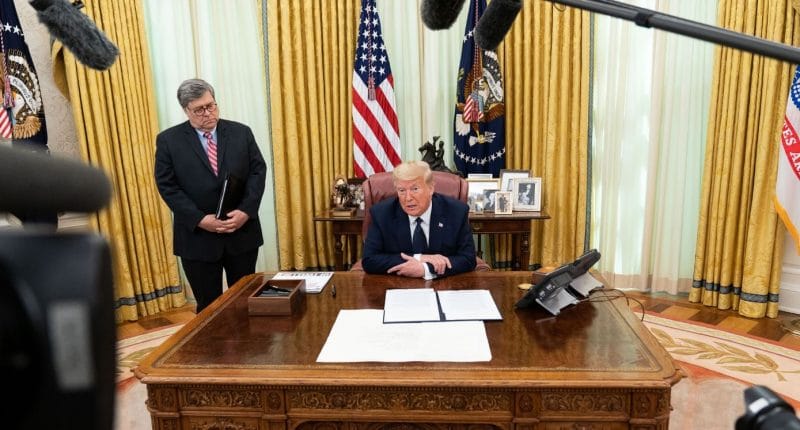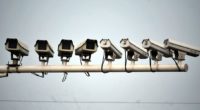US President Donald Trump, in his ever so same attitude of taking reactionary measures, has signed a new executive order, that would significantly curtail the freedom of online speech in the US. The executive order, which was announced late yesterday, attempts to weaken provision of a law known as Section 230, which protects social media companies from liability for content posted by their users.
Trump was joined during the signing by Attorney General William Barr. Barr is a known critic of the liberties enjoyed by social media companies and has spoken in favor of limiting protections bestowed upon them by Section 230.
The Section 230 law of Communications Decency Act basically does not hold the likes of Twitter and Facebook responsible, for the content posted by users on the platform. However, Trump has long accused Twitter in particular, of censoring and curbing conservative views. And while there is no clear evidence that Twitter wrongfully censored content, many politicians and public supporters of Trump have alleged Twitter for the same.
The most recent of those curbs, which led to the executive order, was one wherein Twitter labeled Donald Trump’s tweet on mail-in ballots for fact-checking. Trump later responded with a threat to “shut down or heavily regulate” social media, the latter of which he seems to be doing now with this order.
“The choices Twitter makes when it chooses to edit, blacklist, shadowban are editorial decisions, pure and simple,” Trump said during the signing of the order. “In those moments, Twitter ceases to be a neutral public platform and they become an editor with a viewpoint. And I think we can say that about others also, whether you’re looking at Google, whether you’re looking at Facebook.”
This will be a Big Day for Social Media and FAIRNESS!
— Donald J. Trump (@realDonaldTrump) May 28, 2020
Twitter of course issued a sharp reaction to the order, calling it “reactionary” and “politicized”. The company said, “This EO is a reactionary and politicized approach to a landmark law. #Section230 protects American innovation and freedom of expression, and it’s underpinned by democratic values. Attempts to unilaterally erode it threaten the future of online speech and Internet freedoms.”
This EO is a reactionary and politicized approach to a landmark law. #Section230 protects American innovation and freedom of expression, and it’s underpinned by democratic values. Attempts to unilaterally erode it threaten the future of online speech and Internet freedoms.
— Twitter Public Policy (@Policy) May 29, 2020
Google too was quick to issue a statement against the order. We have clear content policies and we enforce them without regard to political viewpoint,” a Google spokesperson said. “Our platforms have empowered a wide range of people and organizations from across the political spectrum, giving them a voice and new ways to reach their audiences. Undermining Section 230 in this way would hurt America’s economy and its global leadership on internet freedom.
The executive order, that has been titled “Executive Order on Preventing Online Censorship”, says that the country “cannot allow” a set of online platforms to hand pick the speech that Americans may access and convey on the internet. The order has further termed this practice as “undemocratic and un-American”. It further adds “Online platforms are engaging in selective censorship that is harming our national discourse.”
However, experts argue that it would take a lot of effort from the administration’s end to dismantle Section 230, even if they wish to. The legality of the order could be tenuous. Nevertheless, this could somehow put social media companies under pressure of not following the stringent misinformation check policies that they have individually enacted. This order could also embolden jurisdictions in other countries to enact similar laws/order, limiting the freedom with which social media companies operate.
The Tech Portal is published by Blue Box Media Private Limited. Our investors have no influence over our reporting. Read our full Ownership and Funding Disclosure →






